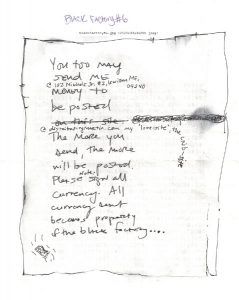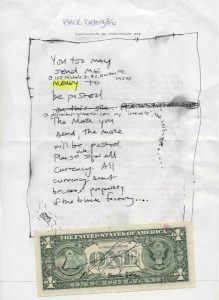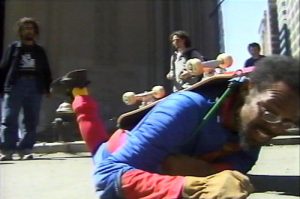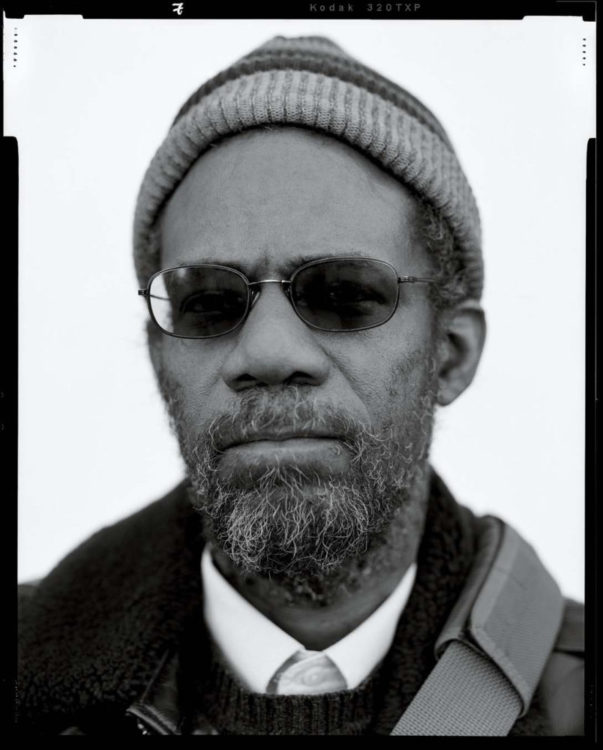
Pope.L
Lewiston, ME
Pope.L was a visual artist and educator whose multidisciplinary practice uses binaries, contraries and preconceived notions embedded within contemporary culture to create art works in various formats, for example, writing, painting, performance, installation, video and sculpture. Pope.L has had solo exhibitions and performances at the Museum of Modern Art in New York, University of Massachusetts, Amherst and The Project, New York. He has also been featured at the Cleveland Center for Contemporary Art, The Museum of Contemporary Art in Los Angeles, and The Drawing Center in New York. His performances include Eracism at Thread Waxing Space in New York, Eating the Wall Street Journal at the Sculpture Center in New York, and The Black Body and Sport in Berlin, Prague, Budapest, and Madrid. His writing has been published in P-Form, M/E/A/N/I/N/G, and by Exit Art. Pope.L’s awards include fellowships from the National Endowment for the Arts, the Maine Arts Commission, a Franklin Furnace Award, and a Mid-Atlantic Residency.
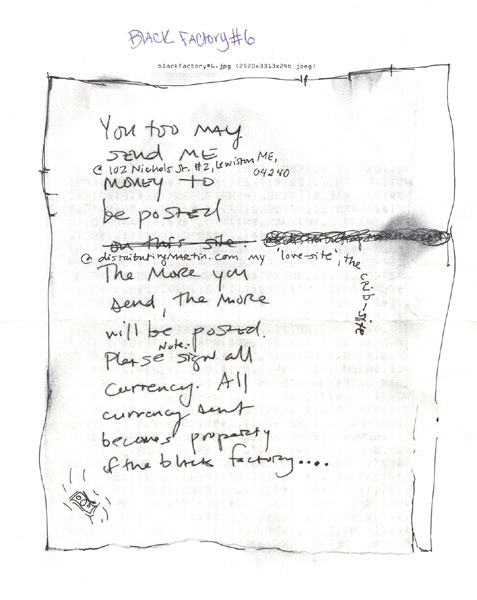
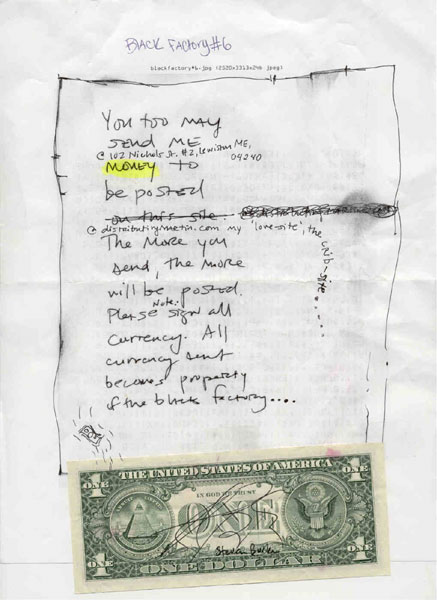

The Black Factory
Pope.L was a visual artist and educator whose multidisciplinary practice uses binaries, contraries and preconceived notions embedded within contemporary culture to create art works in various formats.
Artist BioConceived to fit inside a panel truck, The Black Factory travels throughout America to bring blackness wherever it is needed. The Factory consists of three compartments that unfold to create an interactive public environment made up of a library, a workshop, and a gift shop. Through the circulation of promotional materials and by word of mouth, The Black Factory makes contact with a range of host-communities that invite visits to their town. In preparation for the Factory’s arrival, the hosts spread the word to the local community and ask them to “get the black out.” Whether it’s the high school football field or the foot of the steps to City Hall, the location chosen for The Black Factory to stop and set up shop becomes the drop-site: folks arrive ready to share objects they’ve collected, things that reference blackness for them, from copies of The Soul of Black Folk and images of Martin Luther King Jr., to Ku Klux Klan hoods and the ashes of Jacqueline Onassis Kennedy.
